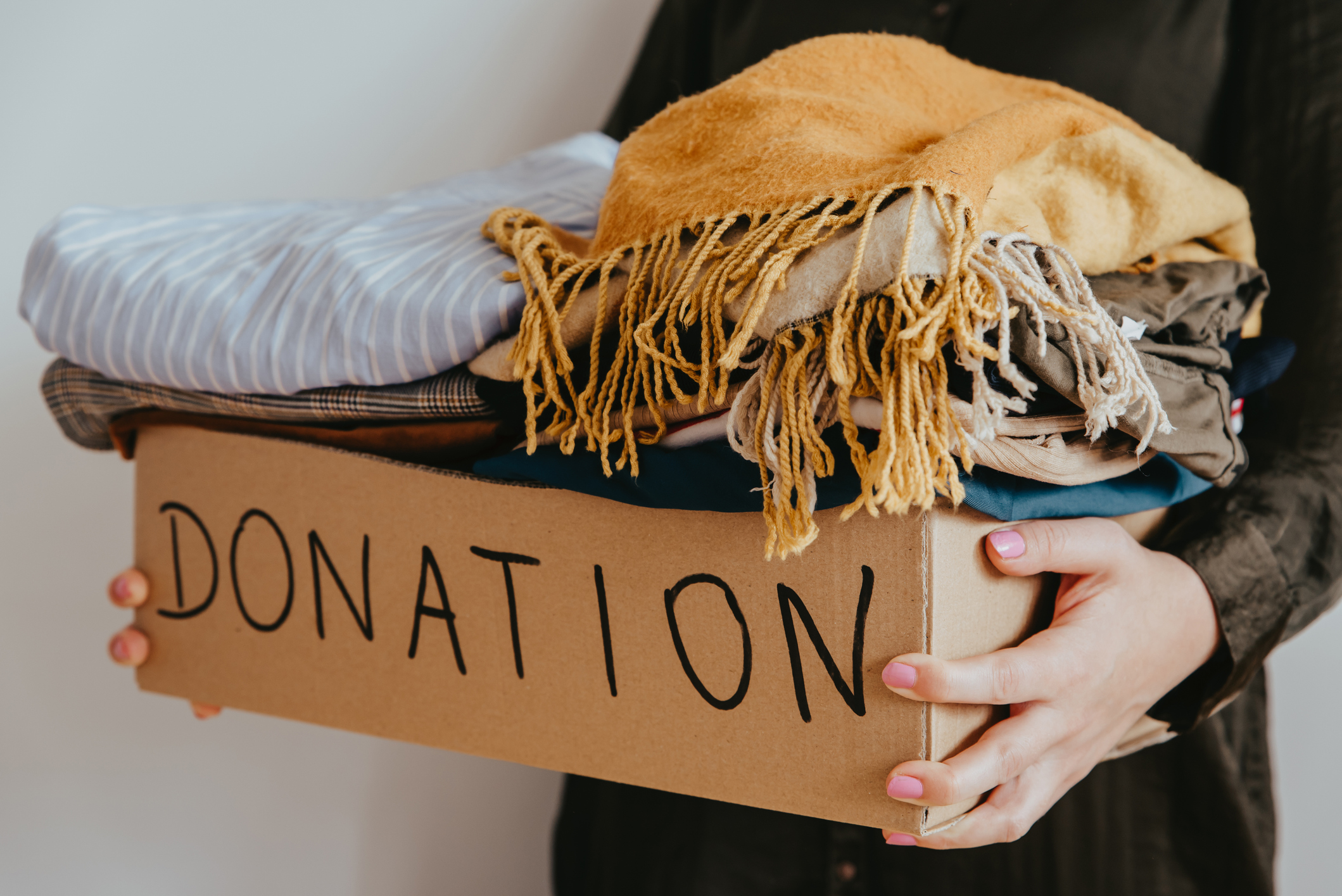Do You Need Umbrella Insurance?
Umbrella insurance can protect you from financially devastating events that aren't covered by other policies.

Rachael Green

Profit and prosper with the best of Kiplinger's advice on investing, taxes, retirement, personal finance and much more. Delivered daily. Enter your email in the box and click Sign Me Up.
You are now subscribed
Your newsletter sign-up was successful
Want to add more newsletters?
Insurance is supposed to shield you from significant financial losses in the event of a disaster. But sometimes, your insurance doesn’t go far enough or cover all of life’s misfortunes. For the rest, you may need umbrella insurance.
Umbrella insurance provides additional liability coverage outside the limits of other policies you have, along with certain expenses not typically included in your existing insurance policies. For example, umbrella insurance protects you if a guest in your vacation rental falls and sues you for damages, if you’re sued for libel or slander, or if you’re involved in a catastrophic car accident that seriously injures another person.
The odds of facing a lawsuit in your lifetime might be higher than you think, and your personal assets are at risk if you end up being sued for more than your existing liability insurance will cover. Here's what you need to know to figure out whether or not you need umbrella insurance.
From just $107.88 $24.99 for Kiplinger Personal Finance
Become a smarter, better informed investor. Subscribe from just $107.88 $24.99, plus get up to 4 Special Issues

Sign up for Kiplinger’s Free Newsletters
Profit and prosper with the best of expert advice on investing, taxes, retirement, personal finance and more - straight to your e-mail.
Profit and prosper with the best of expert advice - straight to your e-mail.
Who needs umbrella insurance?
According to a survey by the American Bar Association in 2021, about two-thirds of Americans had faced some kind of legal problem in the four years prior to the survey. That statistic included criminal cases, not just civil lawsuits. But, for Americans earning $100,000 or more per year, the most common legal issues faced were personal injury or property damage lawsuits.
It's hard to estimate how likely you, personally, are to be sued at some point in your life. But there are some factors that can increase your exposure to a situation that could result in a lawsuit.
Peter Piotrowski, chief claims officer at insurance provider Hippo Insurance, says people who own potentially aggressive dogs or high-risk possessions, such as a swimming pool, should consider adding an umbrella policy.
He also recommends purchasing umbrella insurance if you have teenage drivers, since they’re more likely to get involved in an accident that exceeds coverage provided by your existing car insurance.
Additionally, umbrella insurance is a good idea if you have a high net worth — say, $500,000 or more — because individuals with a lot of assets are more likely to get sued, he says.
Here are a list of situations where it's worth exploring umbrella insurance:
- You have a pool, dog or trampoline at home and regularly invite guests over.
- You have a teenage driver on your car insurance.
- You host often at your home. Even if you trust your friends and family not to sue you over a slip and fall, those "friends of a friend" might not be so trustworthy.
- You're a landlord or own a vacation rental property.
- You have a second home.
- You hire house cleaners, landscapers or other domestic services regularly.
- You coach youth's sports and the league's liability coverage is limited.
- You're on a nonprofit board and the organization's liability limits are low.
Who does not need umbrella insurance?
While umbrella insurance can benefit almost anyone, it might be something you can skip in certain circumstances. That's because standard home and car insurance policies already provide some liability coverage.
So, how do you know if the liability coverage in your existing policies is enough for you? The biggest sign is that the coverage limit is higher than your current net worth (or that you can raise the coverage above your net worth).
Beyond that, review the list of scenarios and situations above that increase your risk of being sued. If none of those apply to you, that's another sign you may be able to skip umbrella insurance.
However, even if you might not need umbrella insurance right now, your situation might change in the future. Whether that's your net worth increasing as you near retirement or moving into a home with a pool, you'll need reevaluate your insurance needs periodically.
Cost of umbrella insurance
Umbrella policies are usually sold in increments of $1 million of coverage, up to $5 million. Premiums range from $150 to $1,000 per year depending on the amount of coverage, Sangameshwar says.
To figure out how much coverage you need, start by estimating how much you additional liability coverage you might need. Add up the value of all your assets, including the amount of equity in your home and the value of your investment and retirement accounts. Kiplinger provides a calculator you can use to estimate the amount of coverage you need.
As is the case with other types of insurance, rising labor costs and an increase in catastrophic weather events have led insurers to raise umbrella insurance premiums. The number of umbrella insurance claims more than doubled between 2010 and 2020, and the size of payouts increased by 67%, according to Safeco Insurance, a division of Liberty Mutual.
How to get umbrella insurance coverage
To qualify for an umbrella insurance policy, you must already have homeowners and auto coverage. In addition, you’ll usually need to have at least $250,000 of liability coverage on your car insurance policy and $300,000 of liability coverage on your homeowners policy, according to the Insurance Information Institute.
To help offset the cost of the umbrella insurance policy, make sure to lower your liability coverage on your other policies to the minimum required to qualify for the umbrella insurance you want.
You may be able to get a discount on your policy if you bundle it with your car or home insurance, depending on the amount of umbrella insurance you purchase and your state of residence. If you’re shopping around for a stand-alone umbrella policy with a new insurer, you can comparison shop on websites such as ValuePenguin and The Zebra.
The application process for umbrella insurance is similar to that for other types of coverage. You’ll need to submit info about your income, assets and existing insurance policy limits before gaining approval.
The amount of insurance you need will vary depending on your location, age, credit history and other factors, says Divya Sangameshwar, insurance expert with ValuePenguin, a consumer website that provides insurance research and analysis.
Where you buy it will depend on when you think you'll need the most coverage. If you're getting it because you host a lot of gatherings at your home or rent out your vacation home, start by getting a quote from your existing home insurance provider.
On the other hand, if you're getting umbrella insurance because you travel a lot and are more worried about, say, the risk of being sued after a car accident, look into bundling the extra coverage with your car insurance instead.
Get more insurance tips and other personal finance insights straight to your inbox. Subscribe to our daily newsletter, A Step Ahead.
Note: This item first appeared in Kiplinger Personal Finance Magazine, a monthly, trustworthy source of advice and guidance. Subscribe to help you make more money and keep more of the money you make here.
Related content
Profit and prosper with the best of Kiplinger's advice on investing, taxes, retirement, personal finance and much more. Delivered daily. Enter your email in the box and click Sign Me Up.

Ella Vincent is a personal finance writer who has written about credit, retirement, and employment issues. She has previously written for Motley Fool and Yahoo Finance. She enjoys going to concerts in her native Chicago and watching basketball.
- Rachael GreenPersonal finance eCommerce writer
-
 Timeless Trips for Solo Travelers
Timeless Trips for Solo TravelersHow to find a getaway that suits your style.
-
 A Top Vanguard ETF Pick Outperforms on International Strength
A Top Vanguard ETF Pick Outperforms on International StrengthA weakening dollar and lower interest rates lifted international stocks, which was good news for one of our favorite exchange-traded funds.
-
 Is There Such a Thing As a Safe Stock? 17 Safe-Enough Ideas
Is There Such a Thing As a Safe Stock? 17 Safe-Enough IdeasNo stock is completely safe, but we can make educated guesses about which ones are likely to provide smooth sailing.
-
 Timeless Trips for Solo Travelers
Timeless Trips for Solo TravelersHow to find a getaway that suits your style.
-
 5 Laundry Habits That Are Costing You Money
5 Laundry Habits That Are Costing You MoneyYou might be flushing money down the drain if you have any of these laundry habits.
-
 My First $1 Million: Banking Executive, 37, Nashville
My First $1 Million: Banking Executive, 37, NashvilleEver wonder how someone who's made a million dollars or more did it? Kiplinger's My First $1 Million series uncovers the answers.
-
 10 Decluttering Books That Can Help You Downsize Without Regret
10 Decluttering Books That Can Help You Downsize Without RegretFrom managing a lifetime of belongings to navigating family dynamics, these expert-backed books offer practical guidance for anyone preparing to downsize.
-
 New Ways to Keep Your Online Accounts Safe
New Ways to Keep Your Online Accounts SafeAs cybercrime evolves, the strategies you use to protect yourself need to evolve, too.
-
 Can Your Car Insurance Add Strangers to Your Policy? A Florida Class Action Lawsuit Could Decide
Can Your Car Insurance Add Strangers to Your Policy? A Florida Class Action Lawsuit Could DecideA Florida driver says GEICO added complete strangers to her car insurance policy and jacked up premiums as a result.
-
 Life Loves to Throw Curveballs, So Ditch the Rigid Money Rules and Do This Instead
Life Loves to Throw Curveballs, So Ditch the Rigid Money Rules and Do This InsteadSome rules are too rigid for real life. A values-based philosophy is a more flexible approach that helps you retain confidence — whatever life throws at you.
-
 The Best Short-Term CD for Your Cash in 2026
The Best Short-Term CD for Your Cash in 2026This strategy can help you earn thousands in months.